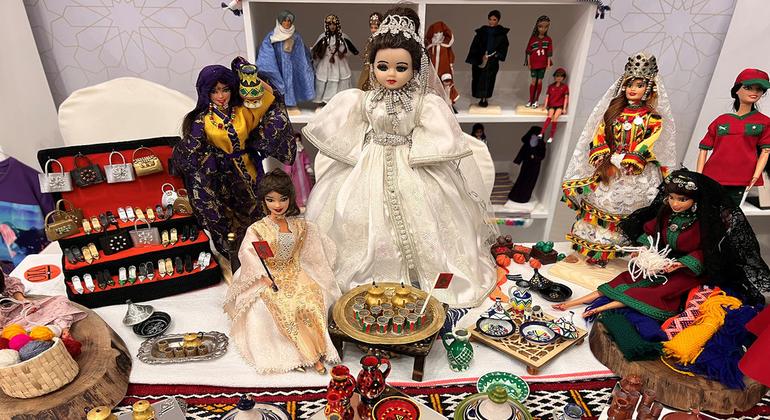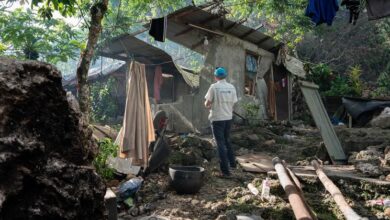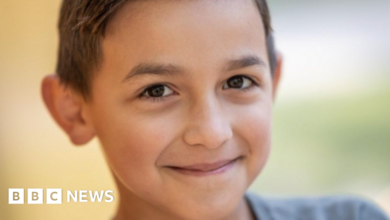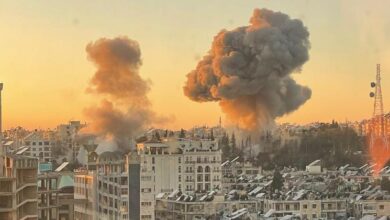The Orange Economy: Where Innovation Drives Prosperity

The vibrant world of the orange economy, also known as the creative economy, emerges.
But what exactly is it and how does it promote peace, promote sustainable development and empower communities?

Former Colombian culture minister Felipe Buitrago co-coined the term orange economy with former President Iván Duque Márquez.
What is the orange economy?
The term “orange economy” was first coined by former Colombian President Iván Duque Márquez and former Culture Minister Felipe Buitrago, a color common across many cultures in the creative, religious, and cultural spheres.
In an exclusive interview with United Nations News At the fourth UN-backed World Entrepreneurs Investment Forum (WEIF) held recently in Manama, Bahrain, Mr. Buitrago explained why.
“When you think about activities like audiovisual, filmmaking, television, video games, music in all its forms, as well as crafts, visual arts, theatre, and activities like design, fashion and increasingly other forms of digital communication, you are talking about something that represents us, our identity in many different forms,” he said.
“Those creative expressions exist together in a very rich ecosystem where you have the creators, the dreamers, but you also have the doers, the entrepreneurs and the policy makers, and that is a very powerful sector of the economy,” he added.
The Power of Creativity in Bahrain

Ammar Bashir, a Sudanese interior designer currently living in Bahrain.
In the heart of Bahrain, Ammar Basheir, a Sudanese interior designer, found himself at a crossroads after returning from the UK. Faced with a job market that required experience he didn’t have, he took a risk, inadvertently pioneering the burgeoning orange economy.
“I was rejected from every job I applied for because I had just graduated,” he recalls.
The orange economy is, in his words, “the new kid on the block”, recognised as a powerful driver of creativity, economic growth and cultural preservation, and an area where collaboration and mutual support are key, fostering a sense of community and common purpose.
“The great thing about the orange economy is that the capital is people’s ideas,” said Bashir, whose company has raised more than $10 million in three years, a testament to the power of innovation to create wealth and jobs. “We found that innovation brings in money and creates jobs for people,” he said.

Comuna 13 is a hillside community in Medellín, Colombia.
Promoting peace and understanding
Former culture minister Buitrago said the orange economy played an important role in promoting peace and understanding between peoples, highlighting the example of gang feuds in Comuna 13 in Medellín, Colombia.
“We have two gangs that were actually brought together by the government and the mayor’s office, creating a joint rap and reggaeton festival,” he explained.
With one group favoring rap and the other favoring reggaeton, the organizers set up a stage that alternated between musical styles. By sharing the spotlight, the groups realized their shared passion for music, that reggaeton and rap weren’t so different and that they could coexist, he said.
“That really reduces the violence and helps them actually start to find different ways to promote community development, rather than just trying to control them through fear,” he added.
Connecting culture with commerce in Morocco

Fatima Zouhra and her family own Yatto, which makes dolls dressed in traditional Moroccan clothing.
Fatima Zouhra, a young artist from Morocco, and her family own a family business called Yatto, which makes dolls dressed in traditional Moroccan clothing. The word yatto, as Fatima explained to United Nations Newsis a Moroccan Berber name that everyone can pronounce easily.
“During the lockdown, we were just at home, there was nothing to do,” she said. “My sister, my mother and I made a lot of dolls because my mother sold a lot of dolls. We found that we had a lot of dolls, so we dressed them up.”
After the lockdown was imposed, they participated in an exhibition in Morocco and sold these dolls.
“People really like the dolls because they are very Moroccan because little kids play with American Barbie dolls,” she said. “We wanted to convey the idea of kids playing with Moroccan dolls, with Moroccan clothes.”
Accelerating the Sustainable Development Goals (SDGs)
But how is the orange economy helping to accelerate? 2030 Agenda for Sustainable Developmentseen as a shared blueprint for peace and prosperity for people and the planet? Mr. Buitrago explains.
“If you check 17 Sustainable development goals “If you look at the SDGs, you will notice that none of them explicitly mention the words culture, arts or creativity,” he said. “However, if you dig deeper, you will see that creativity, culture and arts are both means and ends of the SDGs. This is very powerful because culture is a great and important tool to bring people together to achieve many of the SDGs.”
Culture promotes employment, inclusion, ecological sustainability of cities, better education and cooperation, he said.
“When we gather, when we talk, when we share our views on the world, we are engaging in a cultural exchange,” he added. “This is crucial to achieving the Sustainable Development Goals.”
Empowering Women in Ethiopia

Samrawit Mersiehazen, a visionary creative designer from Ethiopia.
Samrawit Mersiehazen, a visionary creative designer from Ethiopia and creative director of Samra Leathers, is using fashion to challenge economic imbalances and empower women in her country.
“In the fashion industry, we create a lot of job opportunities, especially for women, and we create value for women and society,” she said. United Nations News, highlights the importance of the orange economy in addressing pressing issues in Ethiopia and across Africa.
Highlighting the gap in educational support for creative industries, Ms. Mersiehazen said that although the Ethiopian government has established more than 20 major universities in the past two decades, none of them focus on nurturing talent in creative fields.
“We produce a lot of doctors, engineers, who after graduating have to look for a job for many years,” she said. “These big institutions are not helpful in creating jobs. So this kind of orange economy for people like me who work in the creative industries, provides a lot of job opportunities, especially for women.”
Mersiehazen’s business proves that the creative sector can provide significant employment opportunities. Samra Leather, known for its products ranging from handbags to men’s and women’s clothing, is a beacon of what can be achieved when creativity is harnessed as an economic driver.
A call to respect cultural artifacts
Reflecting on the dynamic world of the orange economy, the phrase’s co-founder, Buitrago, reminds us not to overlook the cultural artifacts that shape human identity.
“The message here is that sometimes we take for granted that there is a craft, a painting or a tune from our heritage, and that is silly,” he said.
“We need to take this seriously because it is a message from the past shared with us today by someone who is still alive and ready to dream of the future with us.”




